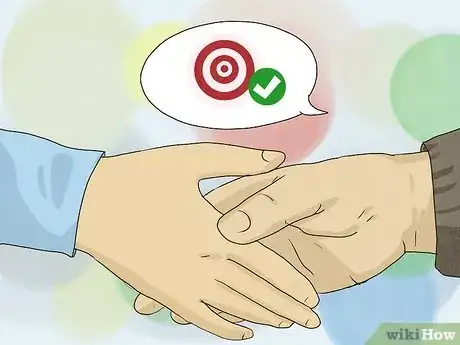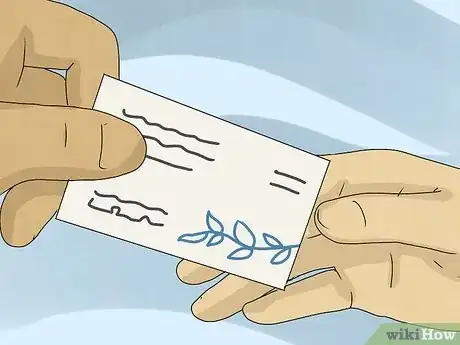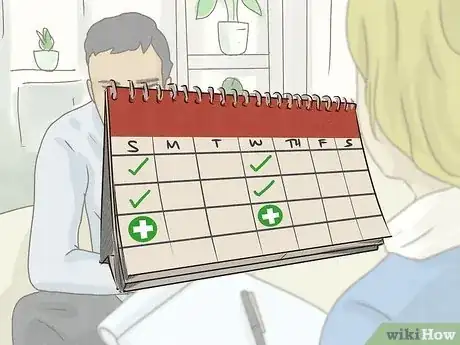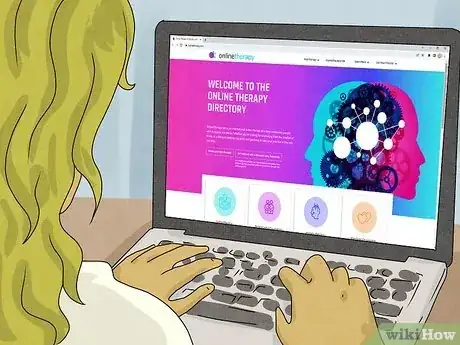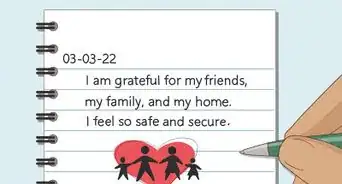This article was co-authored by Kim Chronister, PsyD. Dr. Kim Chronister is a Licensed Clinical Psychologist. She specializes in helping people struggling with substance abuse, relationship problems, eating disorders, and personality disorders. Dr. Chronister has contributed to and appeared on Access Hollywood, Investigation Discovery, and NBC News. She is the author of “Peak Mindset” and “FitMentality.” She holds an MA in Clinical Psychology and a Doctor of Psychology (PsyD) from Alliant International University.
There are 8 references cited in this article, which can be found at the bottom of the page.
This article has been viewed 6,395 times.
Seeing the right therapist is key to meeting your treatment goals. Sometimes that means you need to change therapists to find a better fit, and that’s okay! And sometimes, your current therapist is right for you and that’s why you’re ready to move forward without them. We’ll point out signs that you should break it off with your therapist and give you tips for ending things smoothly and productively.
Steps
Warnings
- If they take personal offense at your wish to end therapy, or threaten to have you involuntarily hospitalised, this is a sign you should end therapy with them immediately! Seek support from your primary care practitioner and your next of kin, and consider reporting the therapist to their licensing board.⧼thumbs_response⧽
References
- ↑ https://www.forbes.com/health/mind/signs-to-switch-therapists/
- ↑ https://www.nytimes.com/2020/01/28/magazine/how-to-break-up-with-your-therapist.html
- ↑ https://www.forbes.com/health/mind/signs-to-switch-therapists/
- ↑ https://www.nami.org/Blogs/NAMI-Blog/July-2020/Why-We-Need-More-Culturally-Competent-Therapists
- ↑ https://www.forbes.com/health/mind/signs-to-switch-therapists/
- ↑ https://www.ajc.com/pulse/it-might-be-time-to-break-up-with-your-therapist/B3WQMCDO2FHI5KZ627GJCVG5UU/
- ↑ https://www.forbes.com/health/mind/signs-to-switch-therapists/
- ↑ https://www.psychologytoday.com/us/blog/here-there-and-everywhere/201809/so-you-want-break-your-therapist
- ↑ https://www.nytimes.com/2020/01/28/magazine/how-to-break-up-with-your-therapist.html
- ↑ https://www.washingtonpost.com/lifestyle/2022/02/12/platonic-breakup-guide-therapist-hairdresser/
- ↑ https://www.psychologytoday.com/us/blog/here-there-and-everywhere/201809/so-you-want-break-your-therapist
- ↑ https://www.washingtonpost.com/lifestyle/2022/02/12/platonic-breakup-guide-therapist-hairdresser/
- ↑ https://onlinecounselingprograms.com/resources/breaking-up-with-therapist/
- ↑ https://www.psychologytoday.com/us/blog/here-there-and-everywhere/201809/so-you-want-break-your-therapist
- ↑ https://www.washingtonpost.com/lifestyle/2022/02/12/platonic-breakup-guide-therapist-hairdresser/
- ↑ https://www.psychologytoday.com/us/blog/here-there-and-everywhere/201809/so-you-want-break-your-therapist
- ↑ https://www.washingtonpost.com/lifestyle/2022/02/12/platonic-breakup-guide-therapist-hairdresser/
- ↑ https://www.psychologytoday.com/us/blog/here-there-and-everywhere/201809/so-you-want-break-your-therapist
- ↑ https://www.psychologytoday.com/us/blog/here-there-and-everywhere/201809/so-you-want-break-your-therapist
- ↑ https://www.apa.org/monitor/2022/07/career-therapy-conclusion
- ↑ https://www.washingtonpost.com/lifestyle/2022/02/12/platonic-breakup-guide-therapist-hairdresser/
- ↑ https://onlinecounselingprograms.com/resources/breaking-up-with-therapist/
- ↑ https://www.psychologytoday.com/us/blog/here-there-and-everywhere/201809/so-you-want-break-your-therapist
- ↑ https://www.apa.org/monitor/2022/07/career-therapy-conclusion





